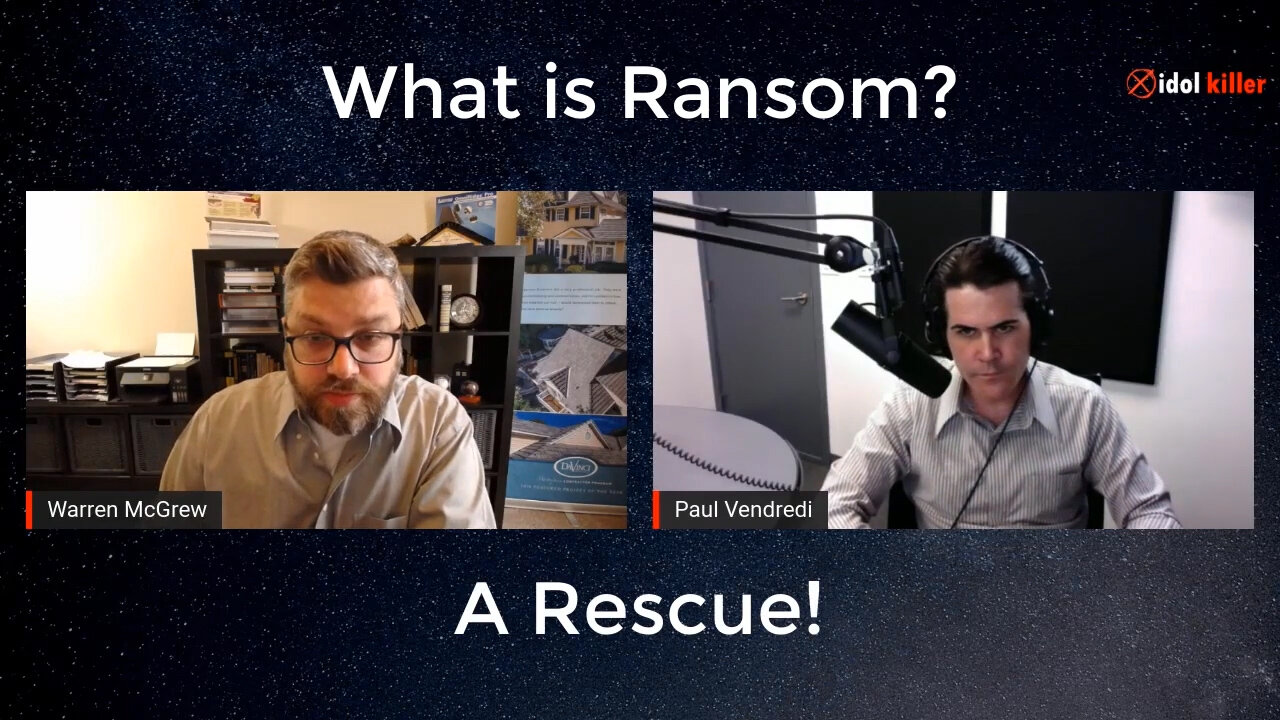Premium Only Content

Idol Killer Interview 7 Did Jesus Fulfil All the Old Testament Sacrifices & Save Us from God?
The second-to-last component in the machinery of penal-substitutionary atonement (PSA) is the idea that Christ--as the perfect, unblemished sacrifice--satisfies God’s wrath against sin once and for all, thereby obviating any further need for animal sacrifices. This claim (#16 in the PSA model) underlies the idea that Christ fulfills the entirety of the Old Testament sacrificial system, a belief that is ubiquitous across Christianity, including Protestantism, Catholicism, and even in the Orthodox Study Bible.
Claim 16 creates inconsistencies with other aspects of the PSA system. Anselm argued that the atonement should mirror the fall and be as painful as possible, which is incompatible with the idea that Christ represents all the Old Testament animals offered in sacrifice, as these were supposedly killed quickly in a painless manner. Additionally, PSA asserts that Christ became a literal sin and a curse on the cross, raising questions about how he could simultaneously be an unblemished offering for mankind's sins. Those discrepancies expose PSA as a false system, lacking systematic consistency. Paul Vendredi also laments the ignorance of prominent Christian scholars towards basic Old Testament festivals, such as the misunderstanding of Passover being synonymous with Yom Kippur and the swapping of the Passover lamb for the Scapegoat. He notes the irony of highly educated theologians mistaking sheep for goats, creating a false system of theology whereof even the most rudimentary of farming experience would have disabused them.
PSA is also undermined by the biblical references to Jesus as a priest after the order of Melchizedek. Melchizedek offered bread and wine, while Jesus reinstituted the sacrifice of bread and wine at the Last Supper. However, Jesus did not seem to hold the priests of his era, who offered animal sacrifices in the temple, in high regard. The speaker cites Matthew 22;29 where Jesus criticizes the priests for not knowing the scriptures. Jesus also predicted the destruction of the temple where these sacrifices were offered. Furthermore, when Jesus entered the temple, he drove out the animals used for sacrifice and overthrew the tables of the money changers, making the buying and selling of sacrificial animals impossible.
Regarding PSA’s ransom-to-God theory, Paul emphasizes that the New Testament does not specify who the ransom is paid to, raising speculation about whether it is paid to Satan, death, or God. Despite various interpretations from church fathers, Gregory of Nazianzus suggested that the term is used in a stipulative sense to mean rescue rather than a strict lexical definition. Indeed, the Greek word "lithron," translated as "ransom," more accurately means "rescue" or "deliverance," as shown in the Septuagint’s rendering of Exodus 6;6, where God promises to “ransom” Israel from Egypt.
-
 0:20
0:20
Paul Vendredi
2 days agoMike Winger, Patristic Hijacker
71 -
 6:49:22
6:49:22
xBuRnTx
13 hours agoHappy Friday Everyone!
36.1K2 -
 2:34:48
2:34:48
Laura Loomer
12 hours agoEP112: MS-13 EVICTED By President Trump
77.9K51 -
 2:53:28
2:53:28
Toolman Tim
10 hours agoCommunity Gaming Night!! | Among Us
42.2K3 -
 2:34:47
2:34:47
GamerGril
10 hours agoMost Dangerous Gril This Side Of The Mississippi
32.8K3 -
 3:44:43
3:44:43
ZWOGs
10 hours ago🔴LIVE IN 1440p! - FiveM Fridays!! GTAV RP!! | Dwindle Digby | - Come Hang Out!
25.1K1 -
 2:05:43
2:05:43
TimcastIRL
12 hours agoTrump Admin Notifies Congress USAID Is CLOSED, Fires EVERYONE, ITS OVER w/Dan Holloway | Timcast IRL
230K178 -
 51:18
51:18
Man in America
16 hours agoClear Skies Coming? States Rally to Ban Geoengineering as RFK Jr. Calls Out ‘Toxic Dousing'
48.6K116 -
 2:22:55
2:22:55
BlackDiamondGunsandGear
16 hours agoThe time is NOW! / EDC / Preps / Load Out
21.3K -
 7:15:16
7:15:16
AirCondaTv Gaming
12 hours ago $0.70 earnedR.E.P.O. - Tonigth's Gonna Be a Good Night (Collab)
17.4K